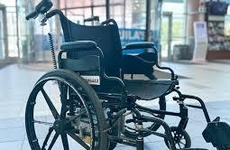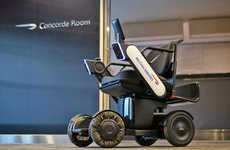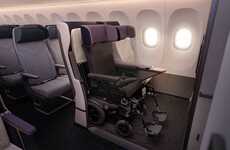
Heathrow Airport Marks World Alzheimers Day with New Policies
Katherine Pendrill — September 21, 2016 — World
Timed to coincide with World Alzheimers Day, Heathrow recently announced its mission to become the world's first dementia-friendly airport. With a growing number of older travelers passing through international airports, the new initiative demonstrates Heathrow's efforts to meet the needs of an aging population.
In order to become a dementia-friendly airport, Heathrow will be training all of its 76,000 staff to help those affected by the condition. The initiative was largely sparked by the success of the airport's 'Parasport teams,' which were deployed during the 2012 Paralympic Games to help passengers with hidden disabilities. Now those same teams have undergone additional training to help those with other conditions such as dementia, autism and hearing and visual impairments.
With businesses around the world raising awareness for World Alzheimer's Day, Heathrow's efforts demonstrate how airports can help make travel more accessible for those with dementia.
In order to become a dementia-friendly airport, Heathrow will be training all of its 76,000 staff to help those affected by the condition. The initiative was largely sparked by the success of the airport's 'Parasport teams,' which were deployed during the 2012 Paralympic Games to help passengers with hidden disabilities. Now those same teams have undergone additional training to help those with other conditions such as dementia, autism and hearing and visual impairments.
With businesses around the world raising awareness for World Alzheimer's Day, Heathrow's efforts demonstrate how airports can help make travel more accessible for those with dementia.
Trend Themes
1. Dementia-friendly Airports - Opportunity to implement dementia-friendly policies and training programs in airports to cater to the needs of older travelers with dementia.
2. Training for Staff - Disruptive innovation opportunity in providing specialized training to airport staff to assist passengers with hidden disabilities such as dementia, autism, and impairments.
3. Accessibility in Travel - Opportunity to promote accessibility and inclusivity in the travel industry by making airports more welcoming and accommodating for individuals with dementia.
Industry Implications
1. Healthcare - Incorporating dementia-friendly practices in airports aligns with the growing healthcare industry's focus on catering to the needs of aging populations with conditions such as dementia.
2. Transportation - Improving accessibility for individuals with dementia presents a disruptive innovation opportunity for the transportation industry to create a more inclusive travel experience.
3. Hospitality - The hospitality industry can benefit from implementing dementia-friendly initiatives in airports, as it showcases their commitment to customer service and providing a positive travel experience for all.
4.6
Score
Popularity
Activity
Freshness























